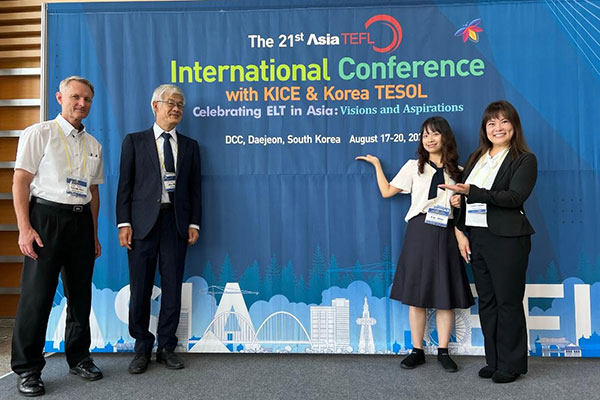言語選択
News
Tamagawa University Professors present at the 21st Asia TEFL International Conference (Daejeon, South Korea, August 2023)
March 14. 2024 : News

Presenting as a featured speaker, Professor Masaki Oda, a Vice President of Asia TEFL and Executive Director for Higher Education at Tamagawa University, cautioned against uncritical acceptance of teaching practices with ‘Western’ cultural and linguistic emphases, encouraging conference participants to consider multilingual and multicultural collaboration with colleagues in the region and local curricular development.
Participating in the Asia TEFL Research Network Symposium, Professor Paul McBride, Director at the Center for English as a Lingua Franca, spoke about English as a widely shared linguistic resource which is shaped by its users from different linguistic and cultural backgrounds rather than simply being a predetermined code or set of conventions used by Monolingual English speakers.
The presentation by Associate Professor Rasami Chaikul was entitled Translanguaging and Transculturalism in Authentic ELF Communication via SNS. It focused on the translanguaging process and cultural fluidity in the utterances of three multilingual speakers with different linguistic backgrounds when using English as their lingua franca while communicating on social media. The study showed that language is fluid and flexible and that language ‘boundaries’ are transcended when interlocutors use their entire linguistic repertoire to facilitate their communication.
Assistant Professor Miso Kim delivered two presentations with her international colleagues. Her first presentation, "Creating a Mediational Space through Collaborative Autoethnography," investigated how a new research methodology, Collaborative Autoethnography, provides a safe space for teachers to reflect on their cognition and emotion and to give support for each other. Her second presentation, "At the Intersection of Practicing Feminism, Teaching English, and Interacting with Public Audience," narrated how her and her colleagues' identities as young female 'non-native' speakers of English intersect with their pedagogy.
